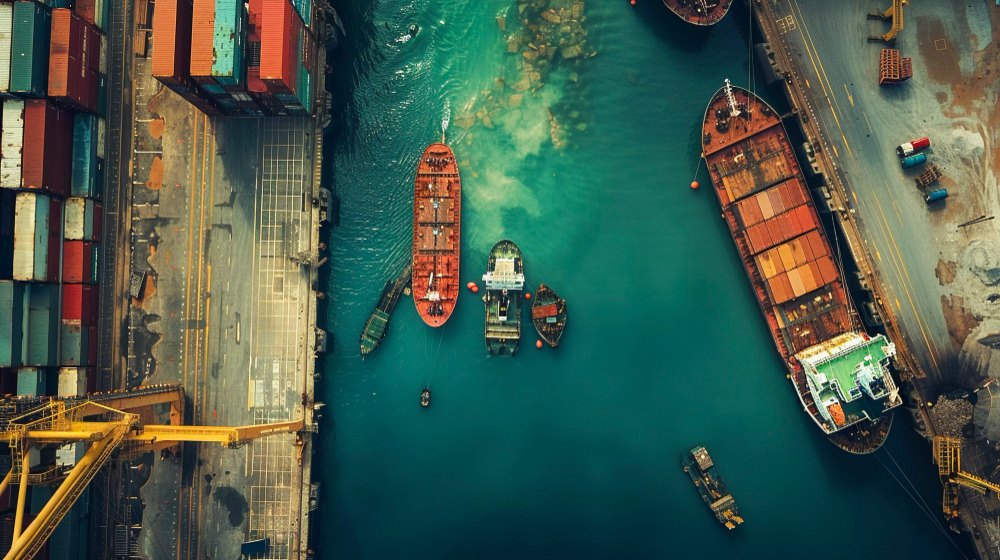
In the trading world of today, there is movement: goods at sea, in air, and on land. What is interesting is how such goods reach their final destination under the best conditions. Whether you are a small business owner shipping a few containers or a multinational corporation with a complicated supply chain, there is always the fear of loss or damage to your cargo in transit. This is where marine cargo insurance comes in—a very important protection measure that safeguards your goods against the myriad risks they are exposed to while in transit.
What is Marine Cargo Insurance?
Marine cargo insurance is a specialized form of insurance covering the loss or damage of goods in transportation through the sea, air, or land route. It is intended to provide coverage when the goods leave the seller’s premises until they reach the buyer’s location. This kind of insurance has a lot of significance for commercial organizations doing international trade since it offers financial protection against a wide range of risks, including natural disasters, accidents, theft, and piracy.
The Importance of Marine Cargo Insurance
Importance may hardly be overemphasized in the matter of marine cargo insurance. Unpredictability in transportation, especially across international borders, opens a whole array of risks to which the goods are exposed. Natural and man-made disasters may strike with full force at any time, causing great destruction to cargo. Such man-made disasters as collisions, shipwrecks, and container spills can lead to considerable loss and are more than likely. Businesses will also have to safeguard against, by way of theft or piracy, the common threats that certain regions present to such kind of property, valuing their goods accordingly.
Marine cargo insurance brings peace of mind in the sense that, in the event of loss or damage, one will be able to recover the value of the goods, and that revisionist loss will not usher in a major financial jerk. Otherwise, one incident could conceivably crush a business, especially if the goods being transported are very valuable.
Types of Marine Cargo Insurance
Businesses require Marine Cargo insurance policies with high flexibility due to the diverse nature of their operations. These policies offer various coverages designed to protect against specific risks:
1. All-Risk Coverage
This is the broadest type of marine cargo insurance, which covers all risks of physical loss or damage to the goods in transit, except for these perils explicitly excluded. All risk coverage provides maximum coverage and is suitable for companies wishing to safeguard their interests in the maximum possible manner.
2. Named Perils Coverage
Named perils coverage, also called “specified perils” coverage, insures businesses from only those named perils on the policy—such as fire, lightning, explosion, or theft. This is narrower than all-risks cover and may be cheaper for those businesses concerned about specified risks.
3. Warehouse-to-Warehouse Cover
This type of coverage provides protection for goods from the moment they leave the seller’s warehouse until their arrival at the buyer’s warehouse. It is particularly useful for businesses looking for a continuous kind of protection throughout the whole transportation process, including storage periods that take place during it.
4. Free of Particular Average Coverage
FPA coverage is a more limited type of marine cargo insurance, where the insurance covers partial losses only if the following takes place: stranding, sinking, or burning of the vessel. This type of insurance might be advisable in a way that it provides businesses with a fundamental kind of protection at a more affordable price.
5. General Average Coverage
In maritime law, the average is applied as the general representation of losses due to sea travel caused by voluntarily sacrificing a part of the ship or its cargo to save the remainder. General average coverage keeps the insured party from paying the entire cost of such share losses.
Read More – Key features to look for in a health insurance policy
Factors That Determine Marine Cargo Insurance Premiums
The premiums charged for marine cargo insurance can vary greatly depending on many factors, which include:
1. Type of Goods
The premium is significantly influenced by the nature and values of the goods being shipped. High-value or fragile items carry a higher risk and therefore command a higher premium than other goods.
2. Mode of Transport
The mode of transport—whether by sea, air, or land—affects the level of risk and, consequently, the insurance premium. The method of transport, be it by sea, air, or land, influences the risk level and therefore the insurance premium. For instance, shipping goods by air is generally considered to have less inherent risk than marine transport, resulting in lower air premiums compared to marine premiums.
3. Delivery Destination
Destination As a key factor in influencing premiums, the delivery destination of the goods has the power to increase or decrease premiums. Shipping risks vary upon destinations with adverse natural disasters, pirate attacks, or political relating in high premiums.
4. Shipping Route
Some shipping routes are riskier than others. Offshore regions linked to piracy, heavy seas, or extreme weather conditions can lead to increased cost on the premium.
5. Carrier’s Liability
The liability of the carrier, the shipping company, may have an impact on the premium. If the particular carrier has a safe and reliable track record, the insurer is exposed to less risk, hence flexible and favorable premium rates.
6. Claims History
A business that frequently lodges claims may be considered a higher risk by insurers and charged a higher premium under provisions. Conversely, without a claim and a clean record, businesses have a chance to make the most of reduced premium fees.
How the Marine Cargo Insurance Claims Process Works
Filing an insurance claim under marine cargo insurance involves several steps, and having a general gist of the process can make it easier for businesses to manage it:
1. Inform the Insurer
This would include first notice of a loss or damage where the insured should ensure prompt notification to the insurer. This shall be prompt, for any delay may cause the rejection of the claim.
2. Damage Documentation
The insured would have to document damages or losses. This would normally be executed through the presentation of the bill of lading, invoice, packing list, and survey report. Pictures of the affected goods would be helpful.
3. Survey and Evaluation
The insurer has the right or can at times appoint a surveyor to assess the loss accurately and determine the cause of loss. The surveyor’s report has a very significant role to play in the claims procedure.
4. Settlement
After going through all the documents and the surveyor’s report, the insurer shall decide the validity of the claim and settle it accordingly. In case the claim stands valid, the insurer compensates the loss or damage as stated under the policy terms of the insured.
5. Mitigating Further Losses
The Insured must exercise reasonable efforts to minimize further losses, which may be by reconditioning the damaged cargo or by securing the remaining cargo to prevent additional damage.
Read More – How Important Expert Assistance Is in Choosing Insurance
Role of Aapkapolicywala in Marine Cargo Insurance
Aapkapolicywala makes very significant contributions to helping small, medium, and large businesses go through the process of marine cargo insurance. It offers businesses insurance with appropriate, cost-effective solutions. Connecting businesses with numerous insurance providers and offering solutions tailor-made to the unique needs of each client is the power of Aapkapolicywala. Now with access to competitive quotes, expert advice, and smooth claim support, businesses can secure the right coverage at the very best rates possible, thereby safeguarding the goods in transit and further enhancing their peace of mind.
Conclusion
Marine cargo insurance is one of the most vital aspects of international trading, giving protection to goods against various threats that might occur to them when in transportation. For a business to make relevant and valuable decisions, it has to understand the available different coverages, factors affecting the premium, and the claims process. This marine cargo insurance provides the financial security required by small and large enterprises alike to navigate the complexities of global trade confidently.
